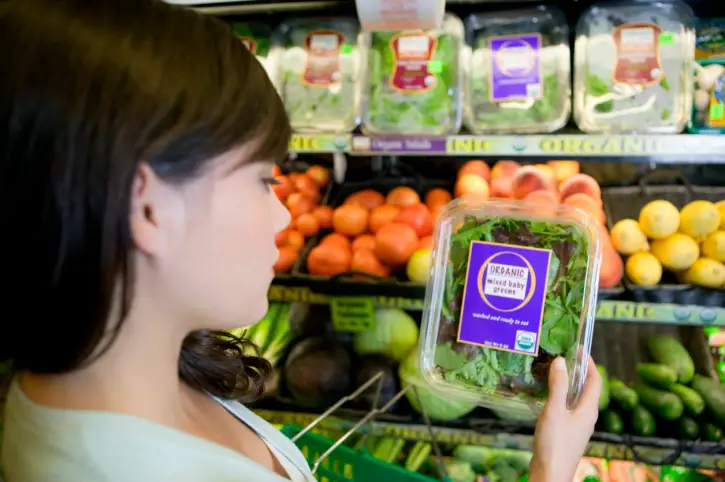
The impact of choosing organic food even 10% of the time on the world, and the environment, may surprise you. PHOTO: zemscience.org
Everyone wants to change the world, but with so many causes and charities and movements out there, how can we even know where to begin?
It can be tough to decide, but one of the fastest-growing among them is the switch millions of people are making to organic from “conventional” foods. The term “conventional” food is actually not so normal after all when you really think about it. The term is used to describe foods that have been grown with synthetic pesticides, a byproduct of the post-World War II era when chemical giants like Monsanto needed to find a way to sell their leftover products.
Using carefully orchestrated propaganda campaigns (anyone remember the ads saying that DDT was “safe?”) these companies convinced farmers to shift from natural, soil-responsible agriculture to the use of these toxic chemicals. But now, the pendulum is swinging back to organic agriculture, and the world will ultimately be better for it.
Don’t believe me? If not, you should take a look at the following chart created by The Organic Center, a non-profit out of Washington, D.C. that’s backing up the organic movement with science-based statistics and research on just how big of an impact we can make by buying even 10% of our groceries organic.
The Surprising Benefits of Going Organic
The chart below was created by The Organic Center and has been passed out at rallies, grocery and health food stores across the country, shedding light on the surprising benefits of organic. The Organic Center is a non-profit research and education center, which includes a science advisory board of notable academic minds from across the country.
The mainstream media is quick to dismiss or even cover up organic benefits like these in support of their “conventional” food sponsors (Pepsi, Coca Cola, fast food giants, restaurants etc.), but a deeper look at the statistics shows that buying even a small amount of groceries organic can make a huge difference:
Not only is organic excellent for the health of our soil, it also is far better for our drinking water, our air, for farm animals, and for human health. And the best part is that it only takes a small change (although I would recommend buying far more than 10% personally!) to start seeing huge dividends in the world around us.
As a special bonus, buying organic helps to squeeze genetically engineered foods (or GMOs for genetically modified organisms) out of the food supply. These dangerously untested crops are found in 70-80% of packaged foods in the U.S. but banned in dozens of countries around the world.
Organic is far from perfect because of corporate influence beginning to water down standards, but it’s still the best way to avoid toxic, synthetic pesticides and GMOs, and the b犀利士
est way to create change that will continue to improve the quality of our food and health over time. So buy local and buy farmer direct as much as you can, and don’t forget to pass this information on to anyone who still mistakenly thinks organic is “not worth the money.”
Check out The Organic Center on Facebook by Clicking on This Link. For more articles like these in your inbox you can also Click Here.
Thanks for installing the Bottom of every post plugin by Corey Salzano. Contact me if you need custom WordPress plugins or website design.





